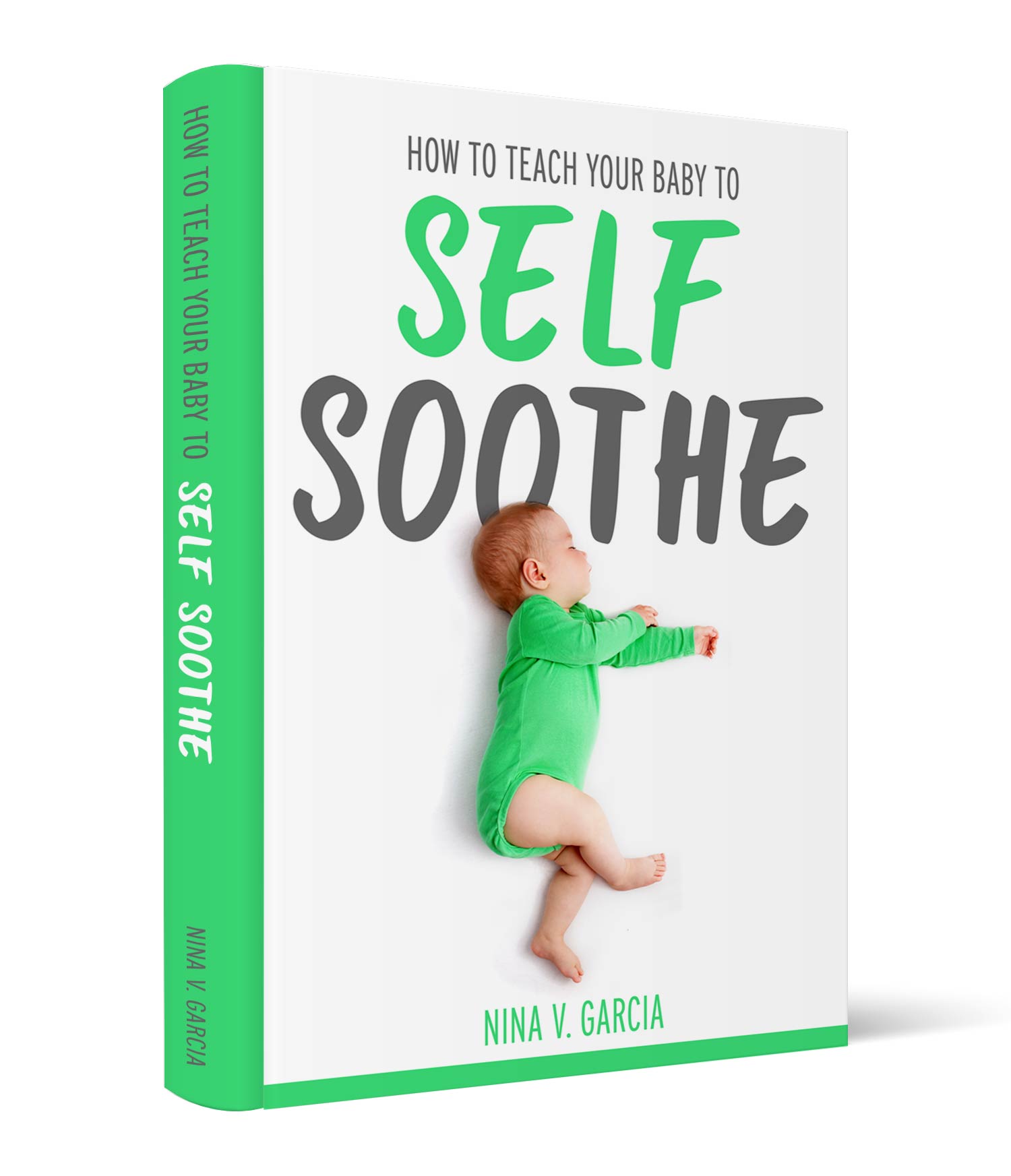What to Do When Your Baby Wakes Up All the Time
Not sure why your baby is waking up frequently? Many factors can impact why a baby wakes up so frequently. In this article, I’ll walk you through several tips to lengthen those stretches and help your little one sleep through the night.

I dreaded going to bed and facing the long stretch of hours before morning began again. Since my 6 month old baby wouldn’t sleep unless held, what should’ve been a restful time for most people was one of frequent wake-ups for me.
Sure, I knew that in the (really) long run, he’d eventually learn to sleep through the night. But I wanted more advice than hearing that babies will sleep at some point or that this was normal and that I should just deal with it.
Thankfully, I learned that I wasn’t destined to get up five or six times a night forever. By applying the tips below, I was able to get a full night of sleep within two days. Take a look at what worked for me—I hope they can work for you, too:
Table of Contents
Teach your baby to put himself to sleep
All this time, I kept thinking that my baby was a “bad sleeper.” After all, he hardly slept long stretches, even in car rides or strollers. But then I realized that he may not be a bad sleeper—maybe he simply hadn’t learned to sleep on his own.
Everyone—even you and I—wakes up throughout the night between sleep cycles. But whereas we’ve learned to put ourselves back to sleep, babies need help, especially if all they’ve ever known was sleeping in our arms or by feeding.
For instance, your baby may be feeding more at night than during the day not because of hunger, but because he relies on feeding to fall asleep. Once he learns how to put himself to sleep, he won’t wake up crying for help. Instead, he’ll know how to sleep on his own. This is how my baby went from waking up every 2 hours to sleeping 11-12 hours straight.
Rather than feeding or rocking him to sleep, allow him to fall asleep on his own. He’ll learn to self-soothe rather than rely on external sleep aids. You’ll still check in on him at frequent and set intervals, but you’re giving him the opportunity to develop this important skill.
Free resource: Interested in learning more about how to teach him to self soothe? Get a preview chapter of How to Teach Your Baby to Self Soothe to see if this is a good fit for you. You’ll also get my newsletters, which parents say they LOVE:
“Love your writings. Thought-provoking as always! Thank you!” -Martina
Wean your baby from nighttime feedings
Babies at this age can sleep 11-12 hours straight at night without milk.
This can feel impossible, what with your baby waking up so often right now. Whether she’s suddenly waking at night for a feed or this has been going on since day one, by this point, she can likely take in all his calories during the day. This can free up her nights completely for sleep.
The trick to weaning night feedings completely, however, is to do it gradually. After all, she could still be relying on these feedings to fill herself up and is waking up out of hunger, and not just habit. That’s why you can’t go cold turkey and withhold milk in one night.
What to do? Gradually reduce the amount you give at night by two minutes or half an ounce for each time she wakes up. Then, add that extra milk to the following day’s feedings. On subsequent nights, reduce them even more (and again, add them the following day).
Another important factor? Feed her about 30 minutes before she typically wakes up, not when she cries (yup, this means waking her up to eat). This helps her break the sleep associations of crying and receiving milk. In other words, you’re beating her to the punch by feeding her before she wakes up screaming for it.

Expert tip
Make sure she’s awake when you put her down in the crib. The goal is for her to learn to fall asleep on her own, not rely on feedings. In the middle of the night, she’ll likely be drowsier, and that’s okay. But try to put her down at least slightly awake so that she doesn’t get used to falling asleep while feeding.
Don’t feed to sleep
Has your baby gotten used to feeding to sleep? Whether this was always your go-to move or a recent habit out of desperation, feeding to sleep can set him up to rely on it all the time. And considering that he’ll stir throughout the night, the last thing you want is for him to wake up crying to be fed.
Instead of feeding him to sleep, feed him after he wakes up, whether when he wakes up for the morning or after each nap. That way, he doesn’t associate feeding with sleeping and can learn to sleep on his own. He’s also awake after eating—not only is this when he needs the calories the most, but he’s not lying flat on his back after having just eaten.
What about early mornings? If he wakes up at 5am, don’t feel compelled to feed him if that’s not the time he’s supposed to get him up. Wait until the “official” wake-up time to feed him.
And while it’s common to feed during the bedtime routine, keep him awake so that he doesn’t fall asleep while eating. If this is a struggle to do, try feeding him at the beginning of the routine (for instance, before bath time) so he doesn’t fall asleep.
Create positive sleep associations
We all rely on certain sleep associations at night, from keeping a room dark to listening to white noise. The problem with sleep aids is when they’re unsustainable—in this case, your baby needs you to make them work.
Maybe that means feeding him to sleep when he wakes up in the middle of the night or co-sleeping together in your bed. For others, it’s inserting a pacifier each time it falls out or rocking him to sleep.
Instead of relying on unsustainable sleep associations, create those that are positive. The goal is for him to experience these signals and learn that it’s time to sleep. A few examples include:
- Playing calming music
- Turning on a white noise machine
- Keeping the room dark
- Having a favorite lovey nearby
- Getting bathed
- Putting on a sleep sack
- Reading books in bed
Follow a consistent bedtime routine
Even though your baby can’t communicate the way you and I can, she can still pick up cues that help her feel either reassured and well-rested, or anxious and fussy. One of the best ways to give her the predictability she needs is through a consistent bedtime routine.
Putting her down at the same time every night can make the nights a bit more predictable. But if bedtime fluctuates at different times, you can imagine that her sleep can be quite chaotic.
Being consistent not only means starting at the same time every night, but also doing the same activities in the same order. For instance, you might give her a bath, followed by a massage and pajamas, reading a book, singing a lullaby, and turning off the lights.
By doing these rituals in the same order every night, you’re creating a consistent bedtime routine that welcomes longer stretches of well-rested sleep.
Decrease the number of naps
As your baby gets older, he’ll need fewer naps than when he was a newborn. So, if he’s still taking four or more naps a day by this point, he might be taking shorter naps and feeding more frequently. These cat naps might be making him extra grumpy and fussy, which only makes bedtime and nighttime sleep more restless.
Instead, stop your baby from snacking on the breast and taking short naps by decreasing the number of naps he takes. This nap transition can lengthen the time of each remaining nap. For instance, instead of 4 short naps, he can take 3, with a wake window of 2-3 hours between each one.
And since you likely feed him after each nap, you’re consolidating those small, frequent feeds into bigger and longer ones.
The bottom line
It’s absolutely possible for you and your baby to get a full night of rest. With these tips, better sleep is on its way—no more dreading going to bed and waking up soon after.
Get more tips:
- How to Stop Comfort Nursing at Night
- 6 Month Old Sleep Regression Signs to Watch Out For
- How to Stop Rocking Your Baby to Sleep
- What to Do When Your Baby Wakes Up Crying from Naps
- Practical Tips for Sleep Training While Teething
Don’t forget: Join my newsletter and get a preview chapter of How to Teach Your Baby to Self Soothe:


